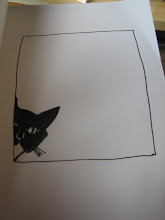I love Amitav Ghosh's novels, and have managed to get The Shadow Lines onto every postcolonial option I've taught (to me, there's no better novel on the tragedy of Partition). I clutched The Glass Palace to me for several days after finishing it (during reading it I became so absorbed that I missed my stop on several train journeys, kept forgetting things and had to restrict myself to reading it at bedtime only for fear of what other troubles it might've got me into.) I love his impeccable attention to historical detail, his lyrical style and the way he creates epics of empire that span continents and are yet so deeply personal and believable. As a result, I was breathless with excitement at the prospect of hearing him talk on the issue of diaspora at the LSE last year for the Runnymede Trust. The Sea of Poppies had been on my shelf for some time, awaiting the right opportunity. I thought the talk would be a perfect prologue.
However, the talk was a disappointment. Ghosh spoke in woolliest, most idealistic terms about migration, as a form of transnational community, a world without restrictive, exclusivist borders, a world of infinite possibility. He tied his argument to the research he had undertaken for The Sea of Poppies, arguing that the sailors who used to traffic opium and the goods of empire were a ragtag bunch of multiple nationalities and religions who nonetheless "got along." Those left at home, he said, were "unfortunate," but could still dream of other places because of the adventures of their more courageous kin.
The whole talk sat uncomfortably with the reason for the lecture: the launch of a major project on Bengali oral history in London titled Banglastories. Anyone at all familiar with Bengali (or indeed, any) migrant narratives knows that Ghosh's take on migration is unbelievably rose-tinted. In particular, the lascars of whom Ghosh writes, worked in the very worst conditions on East India company ships, and died in their thousands on ships during the first and second World Wars. And they've hardly been recognised in official naval histories.
Which is why I had such hopes for The Sea of Poppies: a chance to tell the story of those who have been excluded from the historical record, to imagine their lives and experiences in a way we can't do in historical research because of the sheer absence of material. But although it is a fantastic yarn of a novel, it is just that: fantastic. The unlikely set of characters that end up on this boat just do not convince. Throughout, Ghosh's desperation to create an imagined alternative sense of community to nation-based ones is all too evident: for example, in the passage describing a wedding on the ship, when all the "coolies," regardless of caste or village, become a "family." It's an embarrassingly laboured section where the author's ideological intention drives the narrative, and clumsily. Usually Ghosh is a master of entwining history and literary grace, but here the historical research is hammered home, at the expense of well-drawn characters. I didn't share Ghosh's own joy in the nautical Hindi-English hybrid that peppers the pages, which I just found annoyingly excessive. And there's a hint of intrusive magical realism too in one sub-plot of this novel that just shouldn't be in a Ghosh novel.
That said, it was immense fun to read. Ghosh has enough skill as an author to keep you compelled even when he's at slapdash form and his dreams overtake his plotting. I sped through 500 pages in a matter of a fortnight. Each night, I looked forward to picking it up again. And now I've finished, although not filled with the sense of aching loss that I usually am when I finish a Ghosh novel, I did just google "second part of the Ibis trilogy," which should indicate how willing I am to be on board again (I thought I could resist the urge for a nautical pun in this review, alas not). Just don't take this in the vein of a regular Ghosh novel: historical it ain't. But a lot of fun, it is.
Find me on Instagram!
2 days ago


Nice blog keep up da great ideas!!!
ReplyDelete=)
Plz follow me:
http://handsometoxic.blogspot.com
What a fantastic review, particularly relevent as i'm about to read The Glass Palace xx
ReplyDeleteI have the Glass Palace at home and have tried to read it twice but can never get into it, I will try it again soon but I seem to have trouble getting into these books by Indian authors as I expect them to be about the India that I know but they never are.
ReplyDeleteHaving said that, I loved The God of Small Things, a book that I lost when I moved out of my parents home.
Glad to see you are still reading, Nazneen! And reading well, from the above. I got blog-block a while back and never looked at it, so didn't see you pulling yourself out of a hat, like the postcolonial rabbit you are -- Who IS this woman, I did wonder. Still, going back at it now, and like the frill-lit mix your doing here! Keep it up. R
ReplyDelete